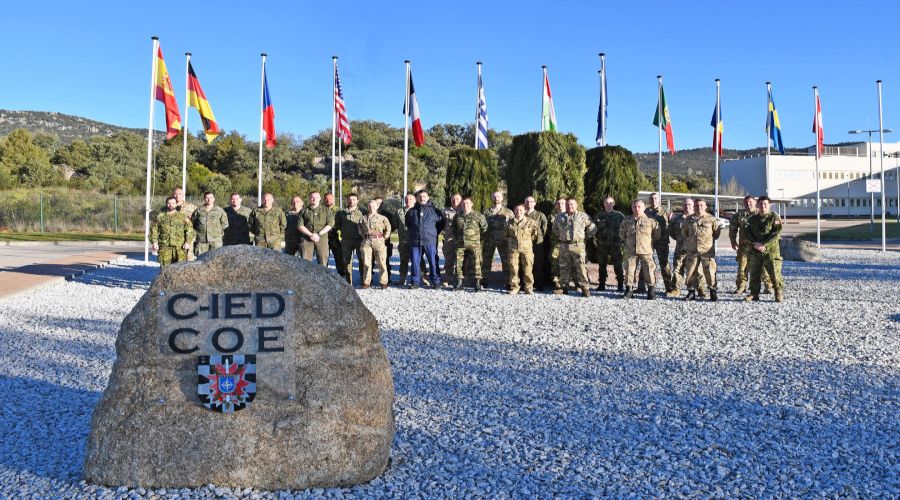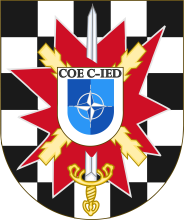

In September 2007, the Spanish Minister of Defence announced his decision to put on offer a Counter-Improvised Explosive Devices Centre of Excellence (C-IED COE), to serve as an international touchstone in the counter terrorism struggle. The main intention was not only to contribute to the overall well-being of the troops and civilians involved in any operation but also to the security of the allies.
Towards the end of 2007, the Spanish Chief of Defence, through the Allied Command of Transformation, formally offered to NATO a multinational Counter-IED COE. Later on, in 2008, the Transformation Command confirmed that the future COE concept fully met with Allied principles.
Prior to joining the NATO COEs community, ACT had to certify that the facilities, quality and level of readiness offered to the allies matched the NATO standards. In June 2010, six countries signed the Memorandum of Understanding in Norfolk, Virginia. Currently, the nations sponsoring the C-IED COE are: Czech Republic, France, Germany, Hungary, Netherlands, Portugal, Romania,Turkey, United States, Spain as the framework nation, with Greece in the process of joining as another sponsoring nation and Sweden as an additional contributing partner.
This NATO Centre of Excellence is one of the actors mentioned in the NATO C-IED Action Plan, which is “aimed to reduce the strategic impact of IEDs in Afghanistan, current and future conflicts by limiting their tactical and operational effects”. It identifies actions required to be fulfilled by the Centre from 2010 onwards.
